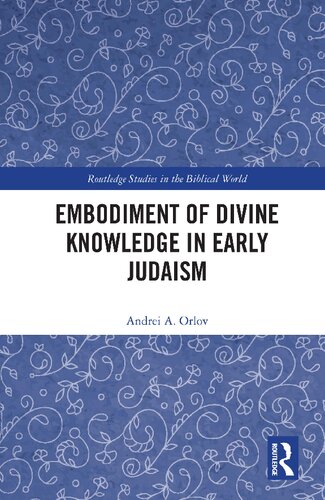

Most ebook files are in PDF format, so you can easily read them using various software such as Foxit Reader or directly on the Google Chrome browser.
Some ebook files are released by publishers in other formats such as .awz, .mobi, .epub, .fb2, etc. You may need to install specific software to read these formats on mobile/PC, such as Calibre.
Please read the tutorial at this link: https://ebookbell.com/faq
We offer FREE conversion to the popular formats you request; however, this may take some time. Therefore, right after payment, please email us, and we will try to provide the service as quickly as possible.
For some exceptional file formats or broken links (if any), please refrain from opening any disputes. Instead, email us first, and we will try to assist within a maximum of 6 hours.
EbookBell Team

0.0
0 reviewsThis volume explores the early Jewish understanding of divine knowledge as divine presence, which is embodied in major biblical exemplars, such as Adam, Enoch, Jacob, and Moses.
The study treats the concept of divine knowledge as the embodied divine presence in its full historical and interpretive complexity by tracing the theme through a broad variety of ancient Near Eastern and Jewish sources, including Mesopotamian traditions of cultic statues, creational narratives of the Hebrew Bible, and later Jewish mystical testimonies. Orlov demonstrates that some biblical and pseudepigraphical accounts postulate that the theophany expresses the unique, corporeal nature of the deity that cannot be fully grasped or conveyed in some other non-corporeal symbolism, medium, or language. The divine presence requires another presence in order to be transmitted. To be communicated properly and in its full measure, the divine iconic knowledge must be "written" on a new living "body" which can hold the ineffable presence of God through a newly acquired ontology.
Embodiment of Divine Knowledge in Early Judaism will provide an invaluable research to students and scholars in a wide range of areas within Jewish, Near Eastern, and Biblical Studies, as well as those studying religious elements of anthropology, philosophy, sociology, psychology, and gender studies. Through the study of Jewish mediatorial figures, this book also elucidates the roots of early Christological developments, making it attractive to Christian audiences.